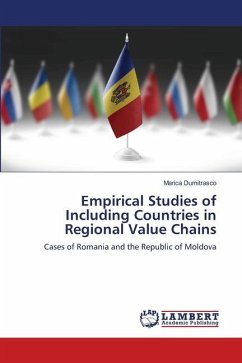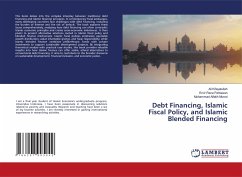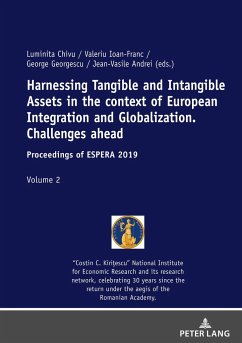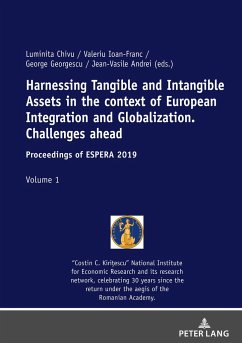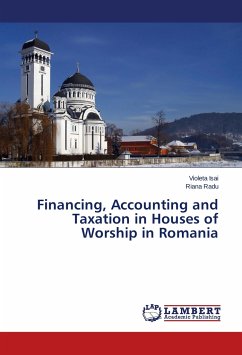
Financing, Accounting and Taxation in Houses of Worship in Romania
Versandkostenfrei!
Versandfertig in 6-10 Tagen
25,99 €
inkl. MwSt.

PAYBACK Punkte
13 °P sammeln!
Religion represents a component of the individual s life and of the community, and must be considered in a social context, through the process of institutionalization. In Romania, the houses of worship are organized and function in accordance with the law, independently and in accordance with their own status. The aspects regarding the financing of the activity, the organization and management of accounting, as well as the numerous tax privileges of which they benefit, make from the denominations a segment of the economic-social activity that is very interesting and equally controversial. Taki...
Religion represents a component of the individual s life and of the community, and must be considered in a social context, through the process of institutionalization. In Romania, the houses of worship are organized and function in accordance with the law, independently and in accordance with their own status. The aspects regarding the financing of the activity, the organization and management of accounting, as well as the numerous tax privileges of which they benefit, make from the denominations a segment of the economic-social activity that is very interesting and equally controversial. Taking into consideration their role in community life, the houses of worship are supported by grants from the state budget, but also by the believers, through donations and sponsorships. Considered as patrimonial entities, they organize their own accounting and prepare their own budget of incomes and expenses. The present book reflects all these aspects at the level of the religious denominations from Romania and it is addressed to the readers who want to deepen the mentioned field.




